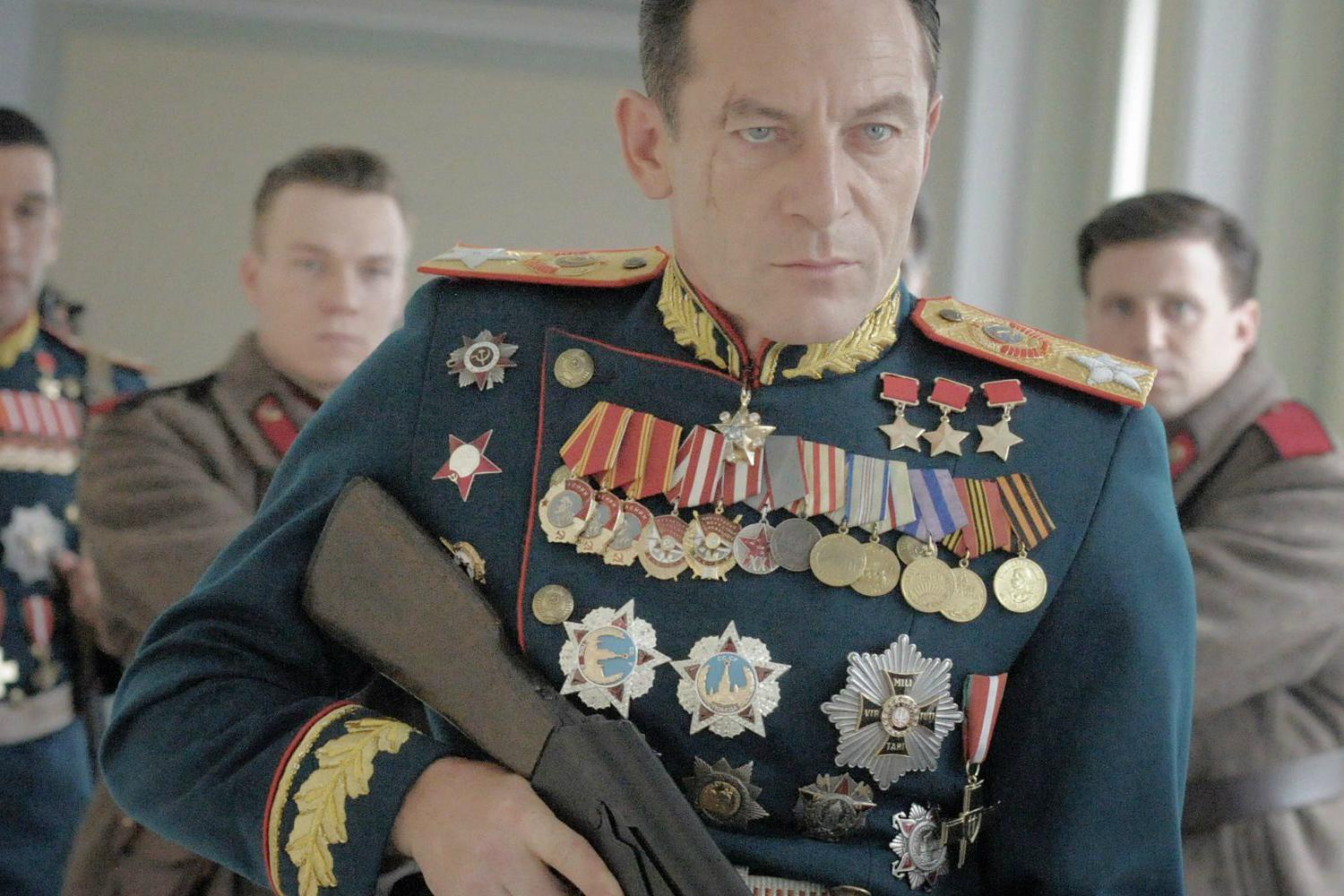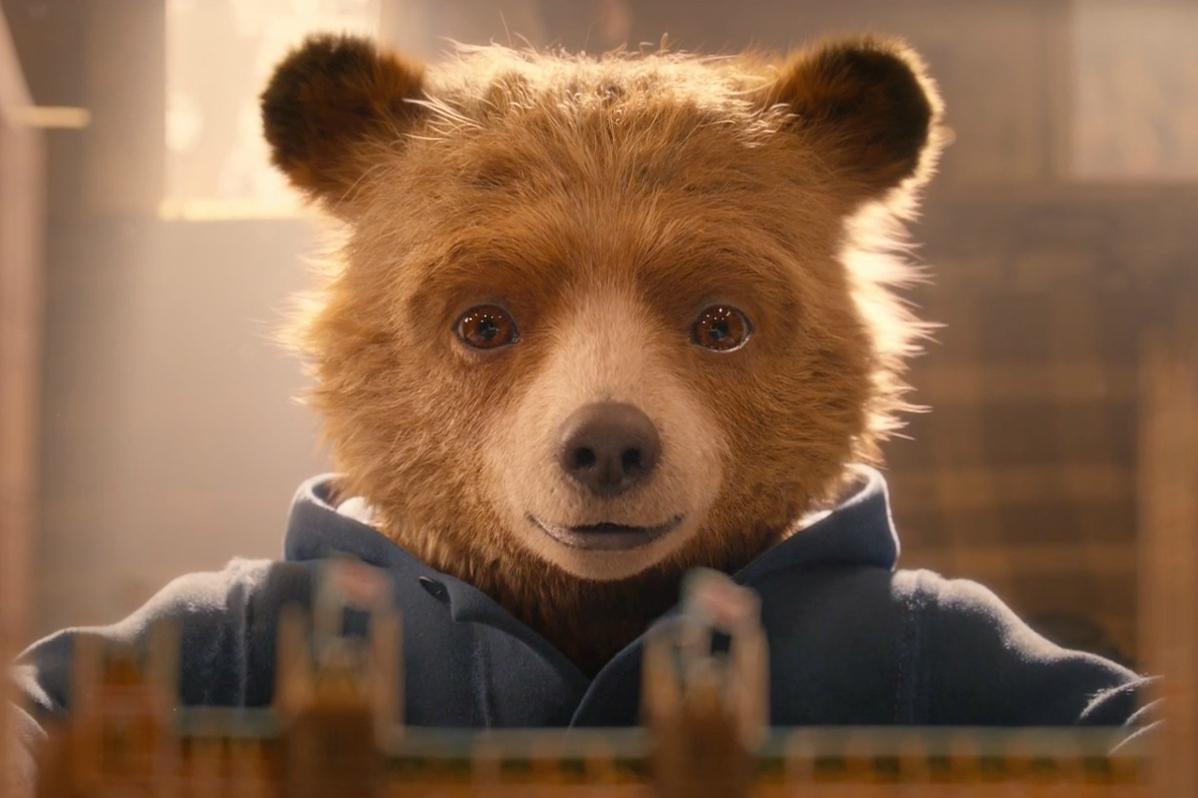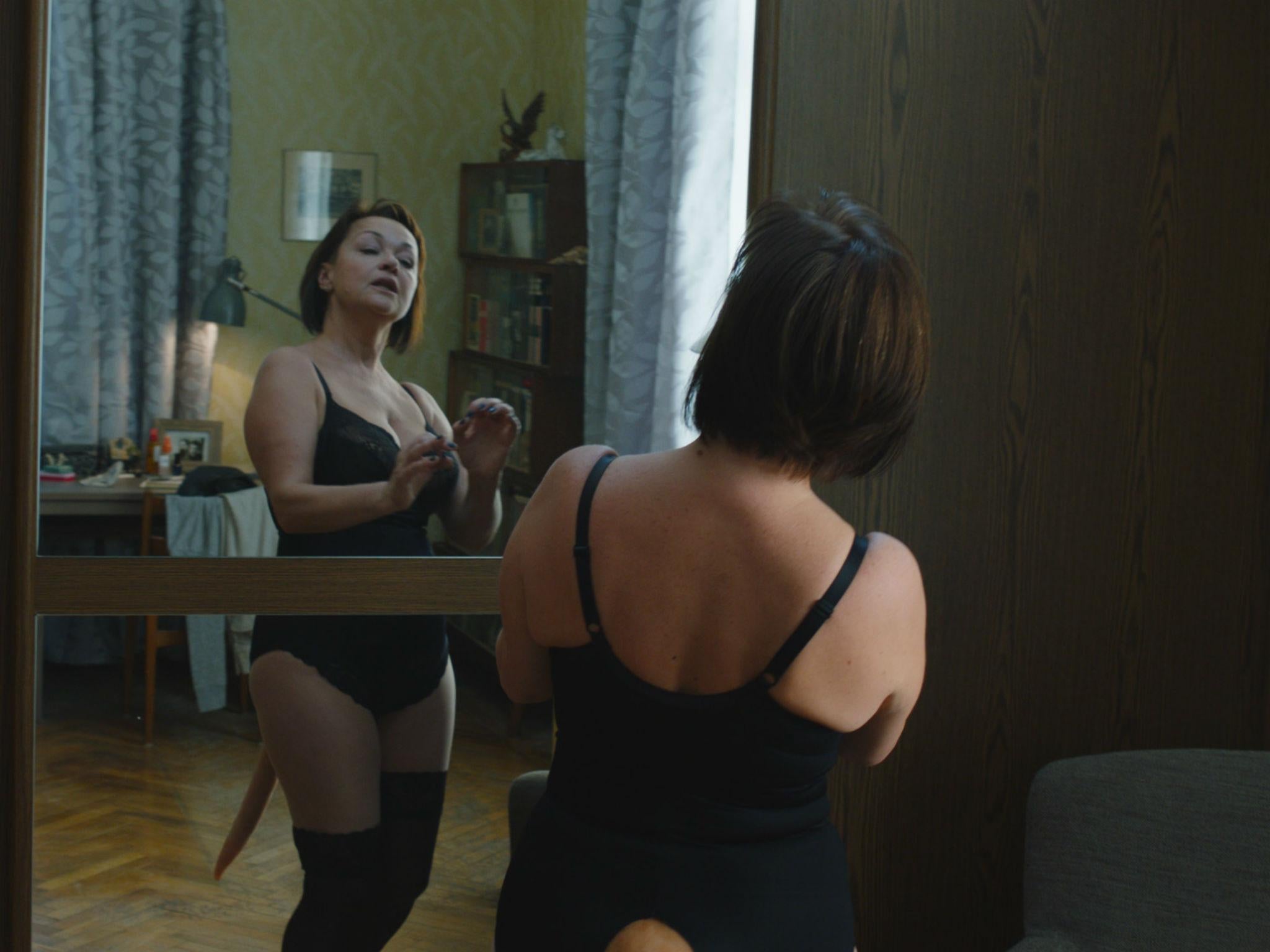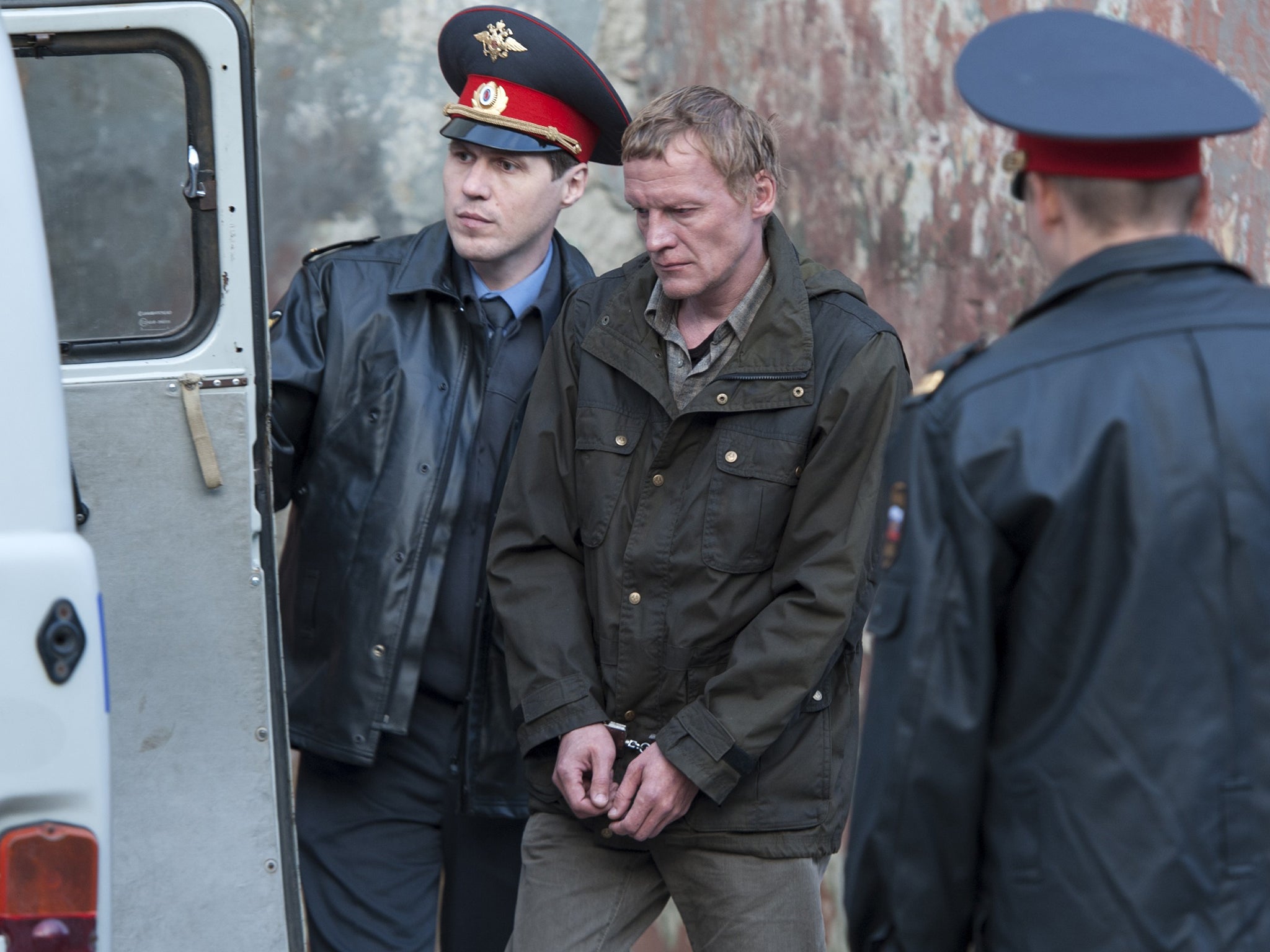Why the frosty relationship between Russia and the West won't chill the movie industry
Home-grown, patriotic blockbusters are breaking Russian box-office records, while ‘The Death of Stalin’ has been banned. But it would be wrong to think Western movies are being frozen out – the reality is a little more complicated than that

The final of the 1972 Munich Olympics basketball is almost over. The Americans, the overwhelming favourites who have never lost an Olympic basketball game, appear to have secured a one-point victory. Amid chaotic scenes, the Soviet coaches protest that the match isn’t yet over. The clock is reset for three seconds – and the Soviets score a miraculous winning basket.
This was the most unlikely and most contentious ending to an Olympic basketball final. Now, it has inspired a Russian film, Three Seconds (also known as Going Vertical), which earlier this year became the biggest local hit in Russian history, eclipsing the record that had previously been held by Fedor Bondarchuk’s wartime epic, Stalingrad (2013).
Stalingrad and Three Seconds both conform to what Westerners might expect of Russian cinema during the late Putin era. They are both patriotic blockbusters in which symbolic foes – the Nazis in one case, the American athletes in the other – are vanquished against the odds.
At exactly the time that Three Seconds was burning up records at the Russian box office earlier this year, grossing well over $50m (£36m), the Russians banned Armando Iannucci’s satire The Death Of Stalin.
With British relations with Russia close to an all-time low following the Salisbury spy poisoning, it is not surprising that irreverent British-made comedies about Soviet history are being shut out of Russian cinemas. Nor is it startling that nationalistic epics are doing so well with local audiences.
Ahead of the Fifa World Cup in June, a rousing new state-financed football movie The Coach – directed by and starring actor Danila Kozlovsky (dubbed “Russia’s Tom Cruise”), and backed by controversial politician and former minister of sport Vitaly Mutko – is about to be released. Later this year, another militaristic epic, T-34, about a courageous group of Russian soldiers led by fearless Nikolai Ivushkin (rising star Alexander Petrov) who escape from German captivity in a half-destroyed legendary T-34 tank, will be unleashed.
Yet look a little more closely at the Russian film industry and a more complex picture emerges.

The Russians may have shunned The Death Of Stalin but anti-British sentiment hasn’t stopped them from taking Paddington to their hearts. Paddington 2 has made more than $6m at the Russian box office – a huge amount for a London-set story about a bear in a duffle coat who eats far too many marmalade sandwiches.
Russian movies that are sharply critical of the status quo are still being commissioned, sometimes with ministry of culture support. For example, the ministry supported Andrey Zvyagintsev’s Oscar-nominated Leviathan, a dark drama that exposed everyday corruption in a small Russian seaside town. True, the ministry appeared to regret the decision and soon afterward complained about certain films “defiling” the national culture. Leviathan was heavily criticised by the authorities – but it was made and released.
Earlier this month, art-house biopic Dovlatov, about dissident Russian writer Sergei Dovlatov, was successfully released. A few years ago, President Putin himself intervened to ensure that leading art-house director Alexander Sokurov was able to finance his film version of Faust, which won the Golden Lion at the Venice Festival.

Watch Apple TV+ free for 7 day
New subscribers only. £9.99/mo. after free trial. Plan auto-renews until cancelled.
ADVERTISEMENT. If you sign up to this service we will earn commission. This revenue helps to fund journalism across The Independent.

Watch Apple TV+ free for 7 day
New subscribers only. £9.99/mo. after free trial. Plan auto-renews until cancelled.
ADVERTISEMENT. If you sign up to this service we will earn commission. This revenue helps to fund journalism across The Independent.
As for the Russian cinema-going public, their tastes turn out to be very similar to those of filmgoers almost anywhere else. They love Vin Diesel and Chris Hemsworth, Thor, The Fast And The Furious and the latest big Hollywood animated features.
“I don’t think there is anti-Western feeling. The audience goes to the cinema to be entertained,” says producer Mila Rozanova. (Her recent credits include Ivan I Tverdovsky’s satire Zoology, about a downtrodden middle-aged female office worker who suddenly grows a tail, and Battle for Sevastopol, about Russia’s most famous Second World War female sniper.)
Rozanova doesn’t see anything inherently sinister either in the current fad for triumphalist films about Russians beating their enemies on the battlefield or on the sports pitch. She argues Three Seconds wasn’t just an exercise in jingoism. “I think there is some kind of feeling of patriotism in the Russian audience but I wouldn’t say that people went to see Three Seconds only because Russians beat Americans. There are other movies in which Russians beat Americans that are not successful and which fail. [Three Seconds] was based on a true story and has a very human character. It speaks to values which are common to people in general.”
“Russian people, like people in every country, like to see films about their culture, everyday life and DNA,” Rozanova continues. It helps, she suggests, that the quality of Russian films is improving. “After the [end of the] Soviet Union, there was a decline in film education. Now, there is a new generation of directors and actors. The level of production is higher.”

Another current hit Russian movie is a cheesy sports movie called Ice about a girl from a tough and impoverished provincial background who blossoms as a champion ice skater. It’s like a Russian version of I, Tonya, but without its knowingness. Disconcertingly, alongside the skating scenes, it features musical interludes in which all the characters suddenly burst into song and dance. Ice may not be sophisticated filmmaking but it’s an effective crowdpleaser.
Of the films in the top 20 at the Russian box office last year, several were shot in British studios. Tom Cruise vehicle The Mummy, Assassin’s Creed, Murder On The Orient Express, Star Wars: The Last Jedi and Transformers: The Last Knight were all at least partly made in the UK.
Pirates Of The Caribbean: Dead Men Tell No Tales did better relatively in Russia than in any other market. (It would have been the number one film of the year if it hadn’t been for Three Seconds). Last weekend, Tomb Raider was top of the box-office charts.
Russian critics may have heaped derision on Joe Wright’s adaptation of Anna Karenina starring Keira Knightley but at least it was distributed there. In recent years, the New British Film Festival in Moscow, organised by the British Council, has continued to bring British films to Moscow. (The most recent edition, late last year, had screenings of such titles as Stephen Frears’ Victoria And Abdul and Francis Lee’s gay-themed God’s Own Country).
While the politicians and the older generation wage their own reheated version of the Cold War, the evidence suggests that younger Russian filmmakers and cinemagoers are far less preoccupied with ideology and nationalism.
Rozanova claims that she has never had “problems” when dealing with the government. The ministry of Culture plays an important role in supporting “auteur” films and titles from first-time directors. A new generation of filmmakers is therefore emerging. Kantemir Balagov’s debut feature Closeness won an International Critics’ Prize in Cannes. Zoology director Tverdovsky is at work on a second feature, Jumpman. Yuri Bykov, who is still in his thirties, has directed several features, most recently The Factory.

“Some people say how can the government support such films which are critical of some social issues in Russia,” says Rozanova. The current debate, she suggests, is less about whether films attacking the state should be supported than about whether Russian taxpayer money should be spent on more commercial movies, which should be able to find financing independently.
The Russian attitude toward Andrey Zvyagintsev is revealing. There is considerable pride about his international success even as officials frown at his coruscating vision of contemporary Russia. Following the furore about Leviathan, his latest film Loveless may not have received any state support, but it was still put forward as Russia’s candidate for the Oscars – and secured a nomination.
“As filmmakers, we don’t want to be engaged in politics but we want to create good movies,” Rozanova says, echoing a familiar sentiment. She points out that international distributors, who are becoming more and more interested in Russian cinema, aren’t swayed by politics either. “If the story is interesting for them, then they want to distribute it. It has nothing to do with our President, our government or our nationality.”
Join our commenting forum
Join thought-provoking conversations, follow other Independent readers and see their replies
Comments
Bookmark popover
Removed from bookmarks